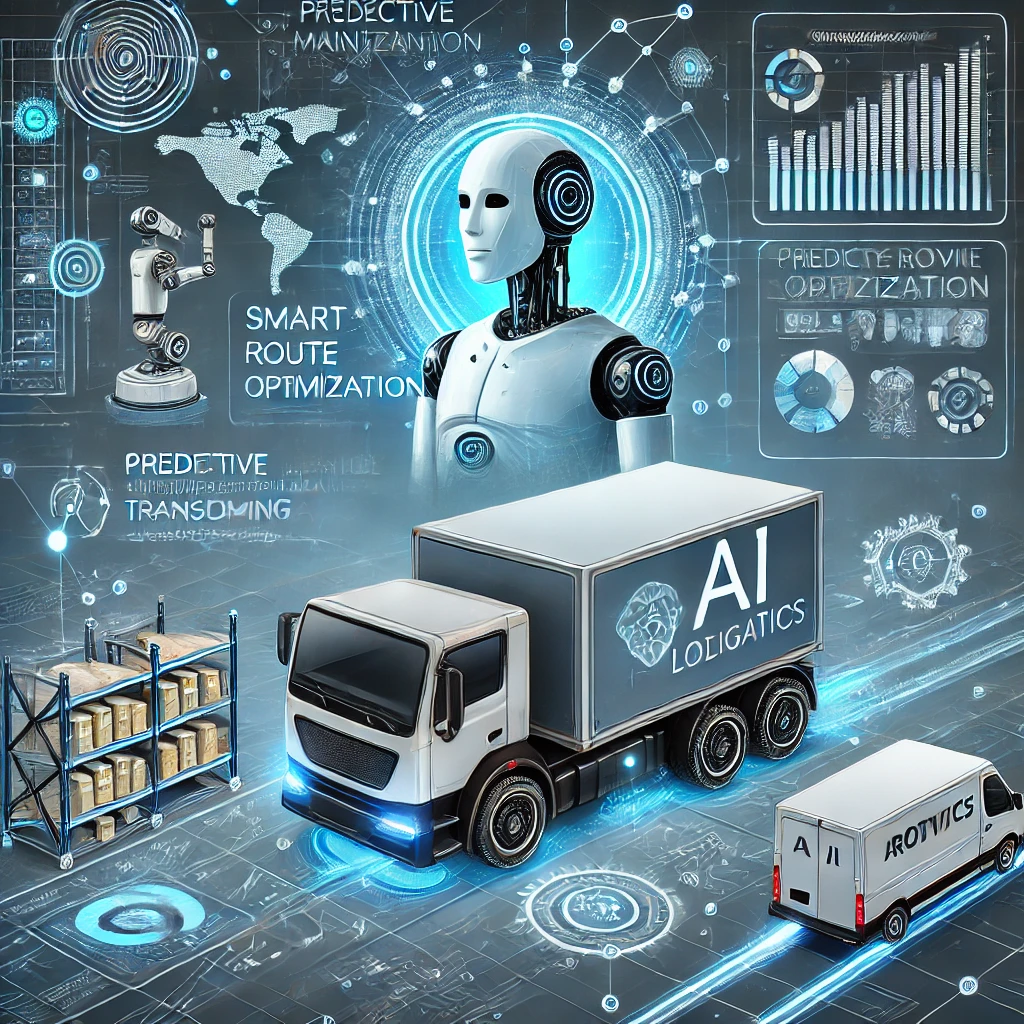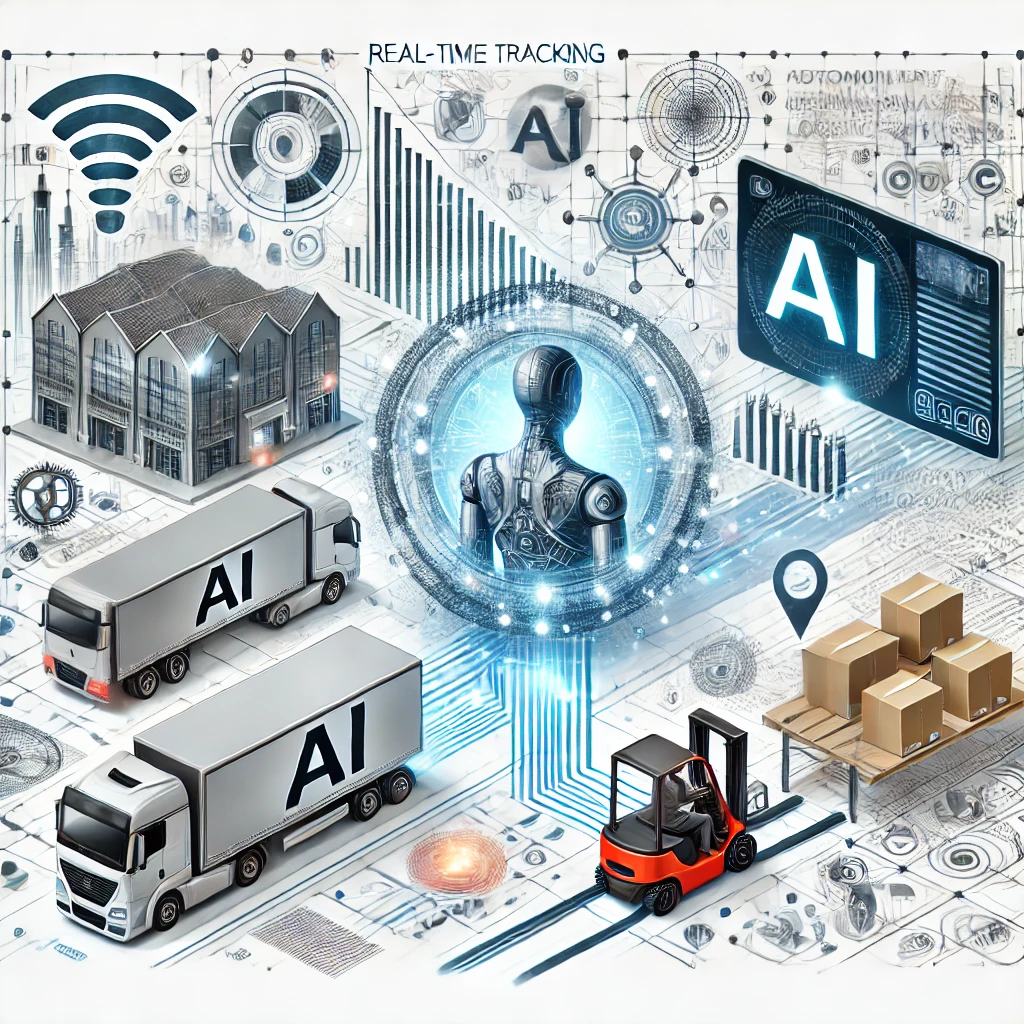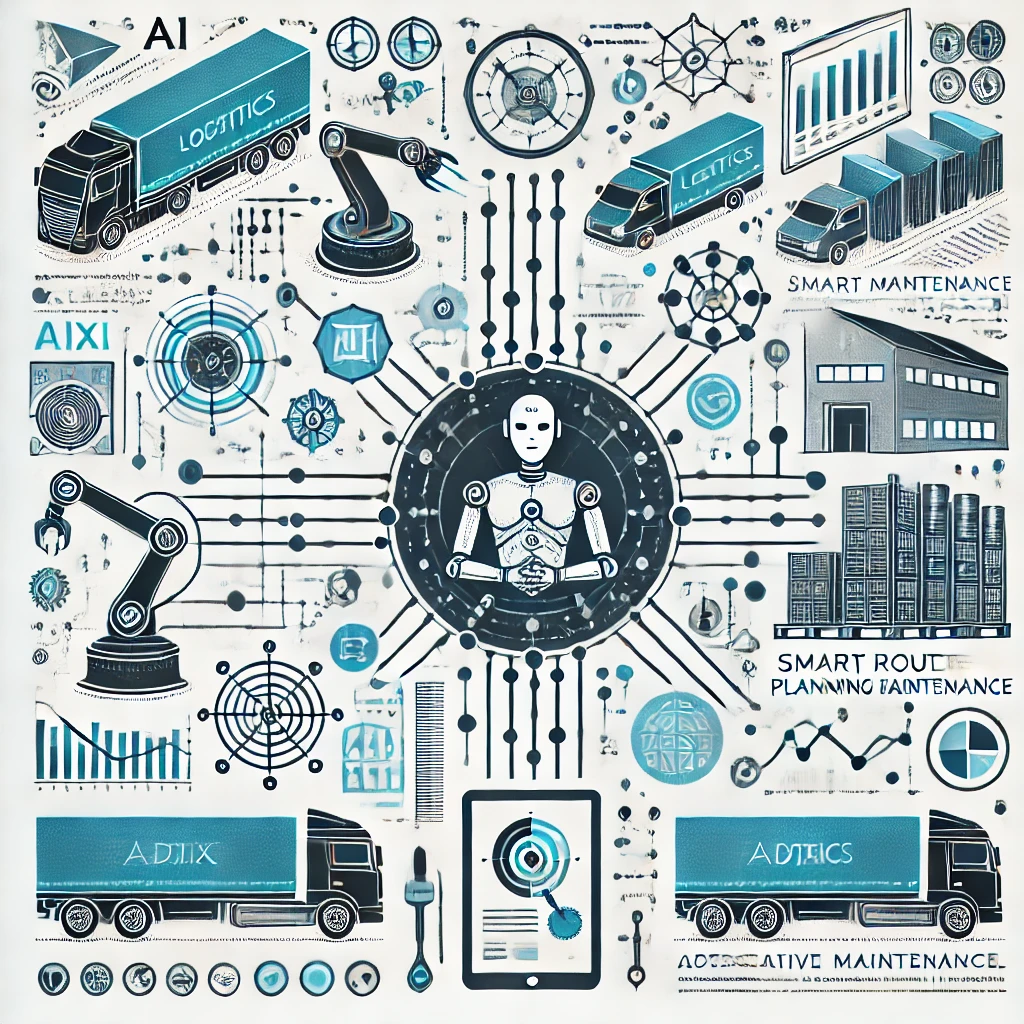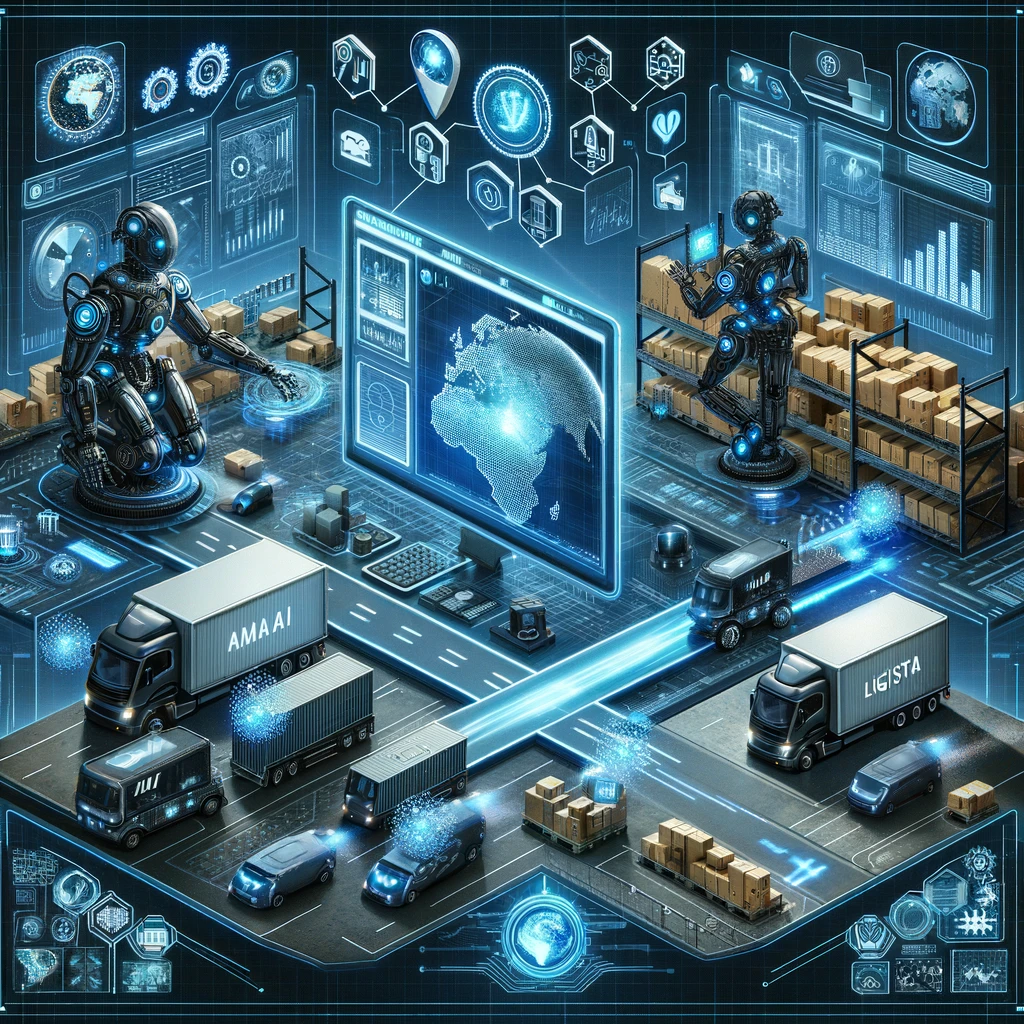Revolutionizing Supply Chains with AI in Logistics: A Comprehensive Guide

What is AI in Logistics?
AI in logistics refers to the application of artificial intelligence technologies to various aspects of supply chain and logistics operations. Key areas of application include:
- Demand forecasting and inventory management
- Route optimization and transportation planning
- Warehouse automation and robotics
- Predictive maintenance for fleet and equipment
- Supply chain visibility and risk management
- Customer service and chatbots
- Autonomous vehicles and drones for delivery
- Data analytics and business intelligence
By leveraging machine learning, natural language processing, and other AI technologies, businesses can automate complex decision-making processes, optimize operations, and gain valuable insights from vast amounts of data.
Benefits of Implementing AI in Logistics
- Enhanced Efficiency: Automate routine tasks and optimize processes for faster, more accurate operations.
- Improved Forecasting: Predict demand patterns and optimize inventory levels with greater accuracy.
- Cost Reduction: Minimize waste, reduce fuel consumption, and optimize resource allocation.
- Better Customer Service: Provide more accurate delivery estimates and personalized experiences.
- Increased Supply Chain Visibility: Gain real-time insights into operations and potential disruptions.
- Risk Mitigation: Identify and address potential issues before they impact operations.
- Data-Driven Decision Making: Leverage advanced analytics for strategic planning and operational improvements.

Key Applications of AI in Logistics
When considering AI implementation in logistics, explore the following key applications:
- Intelligent Forecasting: AI-powered demand prediction for optimized inventory management.
- Smart Route Planning: Dynamic route optimization considering real-time factors like traffic and weather.
- Automated Warehousing: AI-driven robots and systems for efficient picking, packing, and inventory management.
- Predictive Maintenance: AI algorithms to predict equipment failures before they occur.
- Autonomous Vehicles: Self-driving trucks and drones for last-mile delivery.
- Chatbots and Virtual Assistants: AI-powered customer service and internal support systems.
- Supply Chain Visibility: AI-enhanced tracking and monitoring of goods throughout the supply chain.
- Risk Analysis: Predictive analytics for identifying and mitigating supply chain risks.
- Energy Management: AI-optimized energy consumption in warehouses and transportation.
- Document Processing: Automated extraction and processing of logistics-related documents.

Implementing AI in Logistics: Best Practices
- Define Clear Objectives: Establish specific goals for your AI implementation, aligning them with overall business objectives.
- Start with Data: Ensure you have quality, relevant data to train AI models effectively.
- Choose the Right Solutions: Select AI technologies that address your specific logistics challenges and integrate well with existing systems.
- Build Cross-Functional Teams: Combine logistics expertise with AI/ML knowledge for effective implementation.
- Start Small and Scale: Begin with pilot projects to demonstrate value before expanding to larger-scale implementations.
- Invest in Training: Provide comprehensive training to staff to ensure they can effectively work with and interpret AI systems.
- Ensure Ethical AI Use: Develop clear policies for responsible AI use, considering privacy and fairness.
- Continuously Monitor and Refine: Regularly assess AI performance and refine models based on new data and changing business needs.
- Foster a Data-Driven Culture: Encourage decision-making based on AI insights across all levels of the organization.

Emerging Trends in AI for Logistics
As AI technology evolves, new trends are shaping its application in logistics:
- Edge AI for real-time decision making in remote or mobile scenarios
- Quantum computing for solving complex optimization problems
- Explainable AI (XAI) for transparent decision-making processes
- AI-powered digital twins for advanced supply chain simulation
- Federated learning for collaborative AI model training across organizations
Staying informed about these trends can help you choose forward-thinking solutions that will serve your business well into the future.

Conclusion
Integrating AI in logistics can transform your supply chain operations, leading to increased efficiency, reduced costs, and improved decision-making capabilities. By carefully considering your business needs and following best practices for selection and implementation, you can harness the full power of AI to drive your logistics operations forward in today’s competitive business environment.
For businesses looking to revolutionize their logistics with AI, Linbis logistics software offers cutting-edge AI-powered solutions. With its advanced machine learning algorithms, predictive analytics capabilities, and user-friendly interface, Linbis empowers businesses of all sizes to optimize their entire supply chain, from demand forecasting to last-mile delivery. Experience the power of AI-driven logistics and data-driven decision-making with Linbis.
